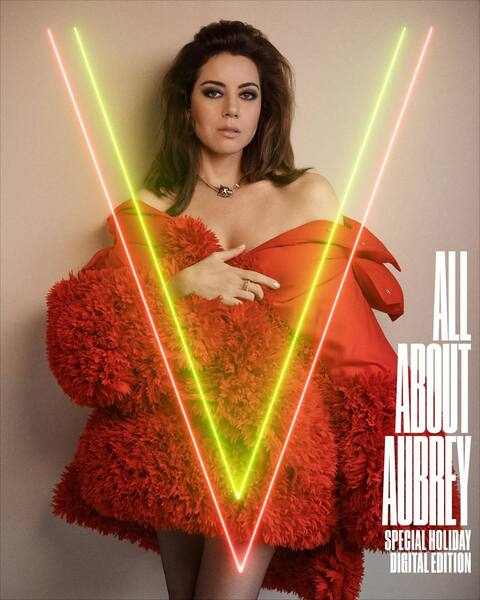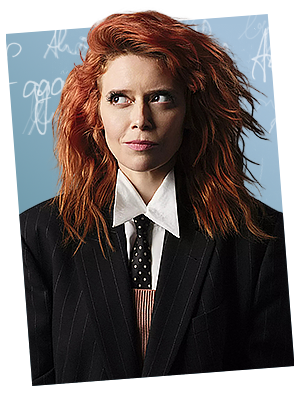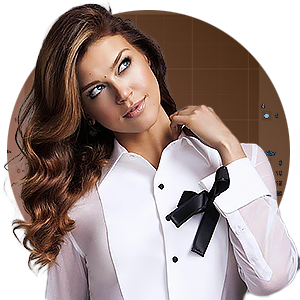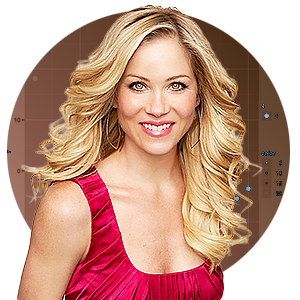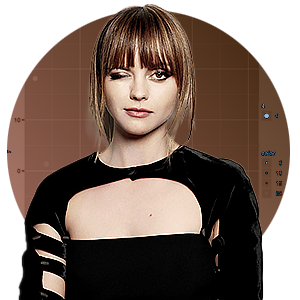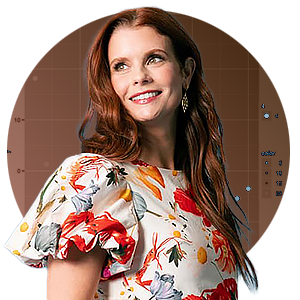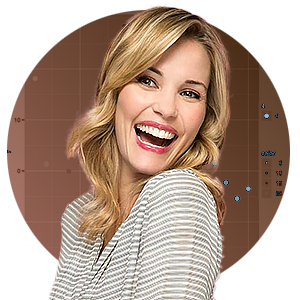
Aubrey Plaza swiftly moves her hands around her head as if to put on an imaginary cap. “Just putting my producing hat on,” she playfully remarks during a recent Zoom interview about Emily The Criminal, a modern-day Los Angeles thriller she not only stars in, but also produced.
It’s no secret that the process of financing movies—especially small ones by first-time directors—is tough and risky in the current climate. But from the get-go, Plaza believed in newcomer John Patton Ford and his engaging story of a penniless gig worker who breaks bad to finally make ends meet—a tale based on his real-life experiences. “When you have a director who’s making a film that is so personal to them, there’s a level of passion there that you just can’t get if you’re just doing someone else’s script. I loved how focused he was on performance. We were on the same page from the beginning, so it was a no brainer. I felt like, ‘Let’s do it. Let’s collaborate on this.’”
Plaza recently spoke to The A.V. Club about the challenges—emotional, creative, and logistical—that she and her collaborators endured to bring this low-budget, high-passion project to the screen.
The A.V. Club: There seems to be a dark edge to many of the characters you choose to play. Emily is no exception. Do you think about this as a through-line in your acting career?
Aubrey Plaza: [Motions her hands again, taking off her imaginary Producer’s Hat.] It’s hard for me to have perspective on myself in that way, but I think I am drawn to complicated characters that have a lot going on. I only have myself to bring to any role that I’m playing. And I think for better or for worse, I guess I have a certain edge or something, whatever you want to call it. And so I can’t help but bring myself to the part. But I still feel a separation between me and the character. But think I try to ground every character in truth, try to relate to them and not judge what they’re doing. I think a part of me comes out in everything I do, but it’s not on purpose.
AVC: We don’t often see women in a role like Emily’s, a kind of unlikable anti-hero who we relate to and root for. They are usually played by men.
AP: I think that’s why John made the lead a female character, because he felt that way too—that [he] hadn’t seen a lot of female roles that are unapologetic, don’t pander to the audience and don’t spend time trying to be likable. When you watch films like Good Time, the Safdie Brothers movie with Robert Pattinson, you’re just [going] along for the ride with that character. What he’s doing is questionable and unlikeable, but you don’t care because you’re just invested in what he’s doing. And it’s true that there aren’t a lot of female examples of that. That’s what drew me to the part: you relate to her, you like her through watching her struggle and make these decisions. You’re rooting for her, but she doesn’t care whether you like her or not. That’s what’s cool about the part. I was lucky to get my hands on it.
AVC: One of the things I loved about Emily is her immense ability to get back on her feet. There were several points in the story when I thought, “This is it for her.” But then she was like, “No, damn it. This is when I fight back and stand up for myself.” What did you draw upon to portray that spirit?
I was lucky to not have to be grinding it out in that way for too long. I was lucky to have an acting career and comedy stuff happen to me at a young age. But there were a couple years that I worked in the restaurant industry. I worked as a temp in New York in different internships and stuff. And I drew upon those experiences because I remember the grind. I remember how it feels to be in a system that just feels like it’s not set up right, it’s failing you. It’s like, you can’t get it. And unpaid internships … it’s insane to be expected to do something like that. So there was a cathartic element to this movie where it felt like, “This character’s saying all the things that normal people want to say, but they don’t get an opportunity to say it.” It’s almost like [Emily] speaks for everybody. Because she’s fighting back and saying the thing that everyone’s thinking, but not saying. That’s what I loved about playing her: I got to act that out for everybody else. But I definitely drew on my own experiences and tried to remember all the times that I felt oppressed, felt like this isn’t fair.
AVC: I love the way you put it. Most people can’t say those things because so much is at stake. But thinking about certain instances years later, I sometimes go, “I wish I said that in that moment.”
AP: Always. I know. What I hope about this movie is that people feel seen by that and they feel some kind of [fulfillment]. Yeah, it’s a revenge story for this generation that’s overqualified and underpaid.
AVC: You have an amazing chemistry with your co-star, Theo Rossi. Emily is in this world of crooks and criminals, but somehow I never quite feared for her when Youcef was around even before we got to know him well. There is such gentle energy and something soothing between the two characters.
AP: Yeah, absolutely. I loved working with Theo Rossi. John and I left no stone unturned when we were in the casting process—we wanted to find the perfect Youcef. And he had all the elements. He had the personal history where he could understand a character like this. But he also is a sympathetic and emotional, empathic guy.
It was clear to me early on that we had similar approach to acting. We got to rehearse a little bit, which is really rare when you’re shooting independent films, but John was very set on rehearsals. In those first meetings, we bonded really fast because we were both down to play. And I think there were no egos involved. We just played with each other; respected and admired each other. And I think we saw ourselves in each other. We found a commonality of pain. That really helped the chemistry. When you’re shooting a movie with such a low budget, you bond because of the [restrictive] circumstances of a tough shoot. The outcome’s always better [when] you stick together. You can feel it on screen when two people get along.
AVC: What was it like shooting this movie in a massive, unpredictable city like Los Angeles considering the tight budget you’ve mentioned? Especially because it’s a high-stakes, constantly on-the-move story that involves a lot of driving and fluidity.
AP: Shooting this movie in Los Angeles was very important first of all, because L.A. plays a character in the film. But not the L.A. that is typically seen like the hipster Silver Lake version or the Hollywood version. [It’s] more the seedy underground criminal world version of Los Angeles. The downtown L.A. Los Angeles. We wanted to feel the grit and movement of that world.
But it did provide a lot of challenges because we couldn’t lock down streets. We didn’t have the money to set ourselves up in a comfortable way, so we did it any way we could, which is really in the spirit of the movie anyway. It felt like we were pulling off a heist every time we moved to a different location. I was really driving in those scenes, driving fast down the 10. Everything felt very real. We decided to shoot the movie in a way that allowed flexibility so that we could deal with the challenges that came. And we had angry neighbors. We had people literally knocking down my trailer door saying, “Get out of my neighborhood. You guys are making too much noise.” And we’re like, “Listen, we’re just doing the best we can. We’re just trying to make a movie.” And so we had to deal with the elements and the communities that we were shooting in. And we used that energy [on the] screen. You can feel how alive it is. We were really out on the streets shooting in almost a documentary style in some ways.
AVC: I’m wondering if you guys looked at any iconic or favorite L.A. movies, old or new, for inspiration.
AP: The movie to me has a throwback vibe to it. We really loved movies of the ’70s and ’80s. That’s a better question for John, but he had a lot of references, from The Beat That My Heart Skipped to Godard.
AVC: Emily is both a physically and emotionally demanding role. Was there a particular scene that maybe took more out of you than the rest?
AP: Yeah. There’s a scene in the movie where I am assaulted. I mean, I’m assaulted many times in the movie but one of those scenes was with an actor named Craig Stark. It’s a robbery scene where he’s buying something from me, but then he turns on me and enters my apartment and takes me down. And the first take that we did of that scene, I was so terrified by him because he’s such a brilliant actor. I realized, “Oh, this is going to be really tough for me because it’s going to feel real.” And not only was it physically challenging because I’m being shoved to the ground and threatened with a knife and everything, but it was also psychologically challenging because he was just so good that it scared the shit out of me every time. It’s your worst nightmare to be followed back to your apartment by a big guy that takes you down. And because he was so believable, it took me a while to shake that day off. That was a long night for me.
AVC: I love where the film leaves us. Without giving away spoilers, it feels like a new beginning for Emily and the start of a brand new movie. Have you and John had any conversations about that?
AP: There were definitely discussions about the ending. Do we end it like this? But you’re right, it does feel like a beginning and those are the best endings. That’s what gives the audience hope, that the story continues on. It’s not just wrapped up neatly in a bow. But will that lead into a new film? That’s a really good question, but I don’t know. It’s rare that a tiny movie like this would get a sequel, but [it’s] not unheard of. And I mean, I’ll take it if that’s where it goes. I would do it in a heartbeat. Everybody really weirdly fell in love with Emily and will continue to do so that I wouldn’t be opposed to seeing where the story goes. I’m along for the ride. I don’t think we’re done with Emily. I don’t think so at all.
Source: The A.V. Club















